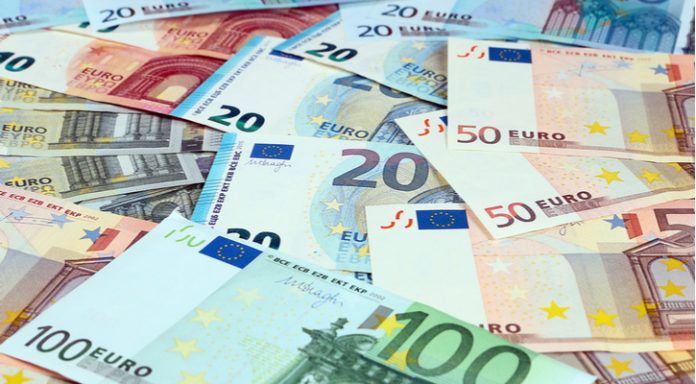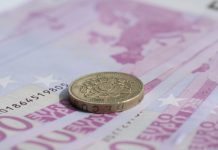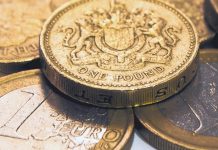- Pound (GBP) extends gains for a third day
- UK economic outlook brightens
- Euro (EUR) falls despite improving German consumer confidence
- The ECB is still likely to cut in June
The Pound Euro (GBP/EUR) exchange rate is rising for a third straight. The pair rose 0.13% in the previous session, settling on Wednesday at €1.1645 and trading in a range between €1.1624 and €1.1652. At 10:00 UTC, GBP/EUR trades +0.24% at €1.1673.
The pound is pushing higher against the euro and the US dollar as investors continue to lift the price amid an improved economic outlook for the UK.
The pound has been rising higher since the preliminary PMI report for April, released earlier in the week showed that business activity increased across the private sector. Business activity, as measured by the composite PMI, rose at the fastest pace since May 2023, boosted by a strong service sector.
The data suggests that the UK recession, which the economy fell into at the end of last year, will be shallow and short-lived. Economic growth is expected in the first quarter of 2021.
Even so, the Bank of England is still expected to cut interest rates in the second half of this year. The market believes the central bank could start cutting rates as soon as June, although August appears to be a more likely month. Bank of England governor Andrew Bailey said he expects next month’s inflation report to show a strong drop.
Meanwhile, the euro is pulling lower despite German consumer confidence improving again in the May forecast. The GfK consumer confidence index climbed to -24.2 for May, up from -27.3 in April.
The data also showed that income expectations rose to the highest level since January 2022, and willingness to spend also ticked higher, although it remained low by historical standards.
The data comes after stronger-than-expected German business confidence figures yesterday and a jump in the services PMI earlier in the week.
The data suggests that the German economy is starting to recover after its downturn.
Even though, the ECB is still expected to start cutting interest rates in June. This could make the ECB one of the first major central banks to cut rates, keeping pressure on the euro.





